LGBTQ+
LGBT is an initialism that stands for lesbian, gay, bisexual, and transgender. In use since the 1990s, the initialism, as well as some of its common variants, functions as an umbrella term for sexuality and gender identity.
LGBT is an initialism that stands for lesbian, gay, bisexual, and transgender. In use since the 1990s, the initialism, as well as some of its common variants, functions as an umbrella term for sexuality and gender identity.
Если доступ к казино ограничен, используйте Вавада-зеркало. Оно предоставляет полноценный доступ к играм, турнирам и бонусам Vavada без перебоев.
.Looking for an honest site to play? You've come to the right place! We offer the original Lucky Jet game with a guarantee of fair results.
.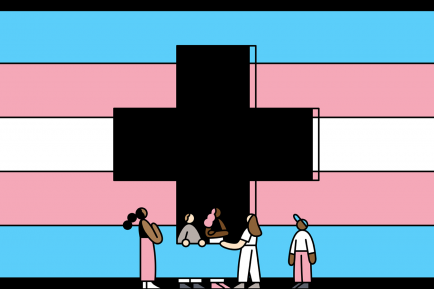
As a MSW student, I have been spending the last two years studying the ways different systems (e.g., political, social, medical, economic, and religious) harm the transgender community. I wanted to share a few thoughts about Waldman’s op-ed because the article reinforces some misconceptions about gender-affirming care for youth.
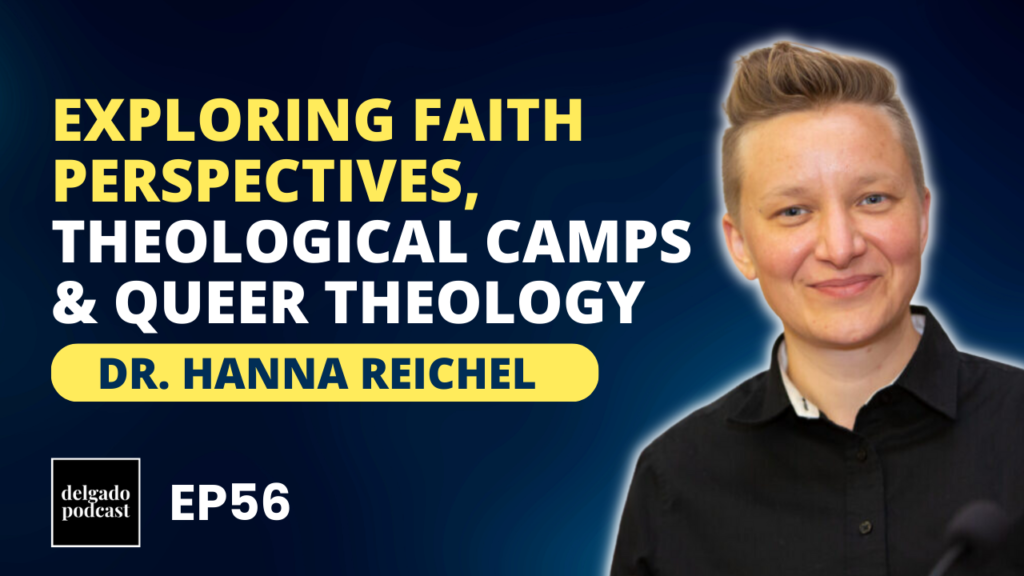
We’re honored to learn from Dr. Hanna Reichel, an associate professor of Reformed Theology at Princeton Theological Seminary, about their journey of faith, academic research on reformed theology, and their new book: After Method: Queer Grace, Conceptual Design, and the Possibility of Theology.
You can get this full episode on iTunes, Spotify, Google Podcasts, Stitcher, or YouTube. You can also download or listen to the full podcast episode here.
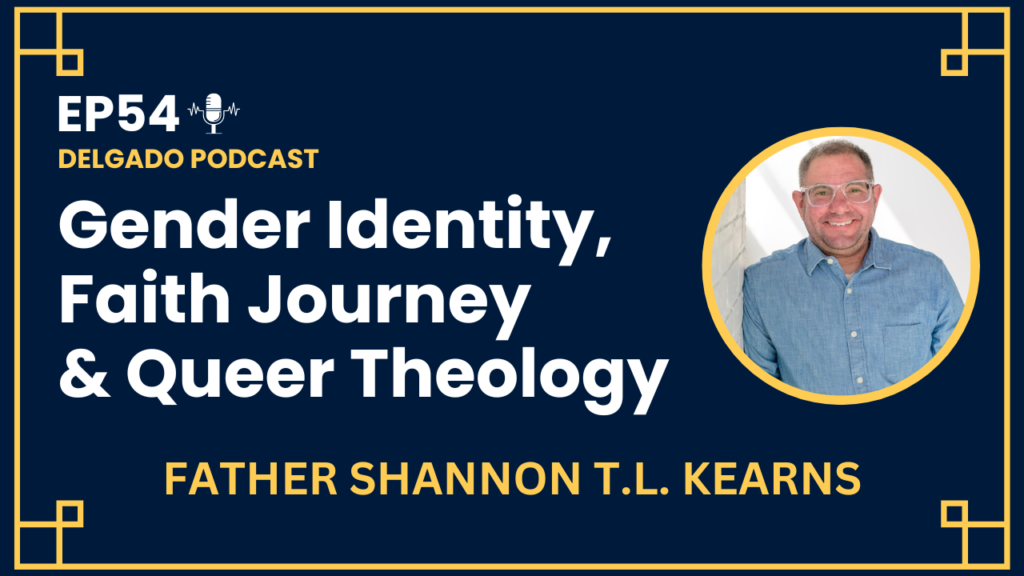
We’re honored to learn from Father Shannon T.L. Kearns about identity formation, faith reconstruction, hermeneutics, and Queer theology. Father Kearns is the author of “In The Margins: A Transgender Man’s Journey with Scripture.”
You can get this episode on iTunes, Spotify, Google Podcasts, Stitcher, or YouTube. You can also download or listen to the full podcast episode here.
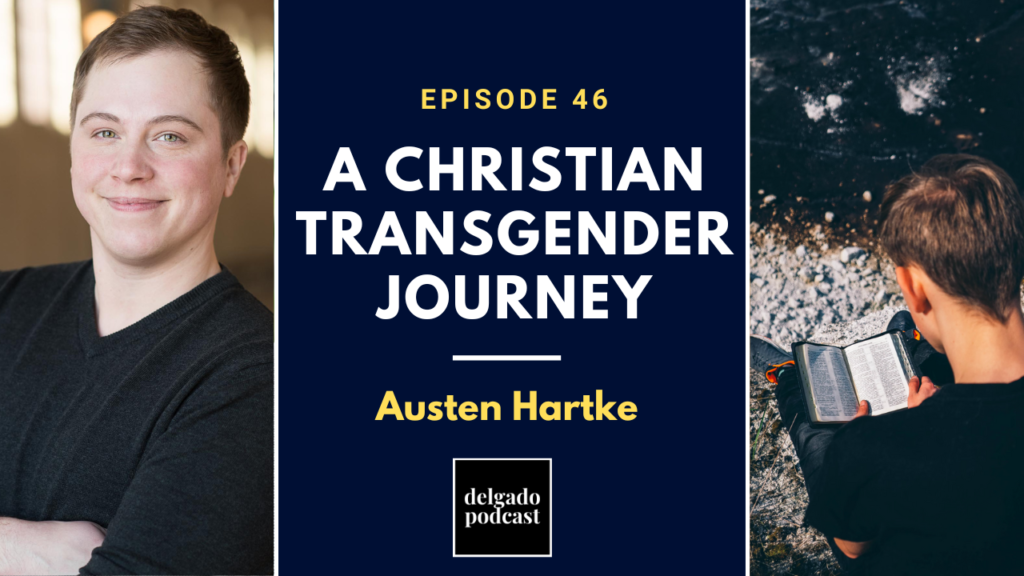
In this week’s podcast, we’re honored to learn from Austen Hartke about coming out as transgender in seminary, the work he is doing right now to help transgender and gender-expansive Christians, and some encouraging words for Christians parents of transgender youth.
You can get this episode on iTunes, Spotify, Google Podcasts, Stitcher or YouTube. You can also listen or download the full podcast episode here.
In this episode, Austen talks with us about:
• Choosing an affirming vs non-affirming seminary
• Anxiety about going to a non-affirming seminary
• Advice for LGBTQ+ students wanting to attend seminary
• How Hebrew courses helped Austen understand bias in Bible translations
• What shocked Austen in his Pentateuch (Torah) classes
• Dealing with difficulties in the Bible
• Genocide and sexual violence in the Bible
• Fears of coming out as transgender in a non-affirming seminary
• Anti-transgender legislation and fears of trans youth
• Advice to trans people on self-acceptance and transitioning
• Tips for parents and guardians of transgender and gender-expansive Christians
Austen Hartke is a graduate of Luther Seminary’s Master of Arts program in Old Testament/Hebrew Bible Studies, and is the winner of the 2014 John Milton Prize in Old Testament Writing. He is the author of a book entitled “Transforming: The Bible and the Lives of Transgender Christians,” which is published by Westminster John Knox Press. He is also the founder and director of Transmission Ministry Collective — an online community dedicated to the spiritual care, faith, and leadership potential of transgender and gender-expansive Christian.
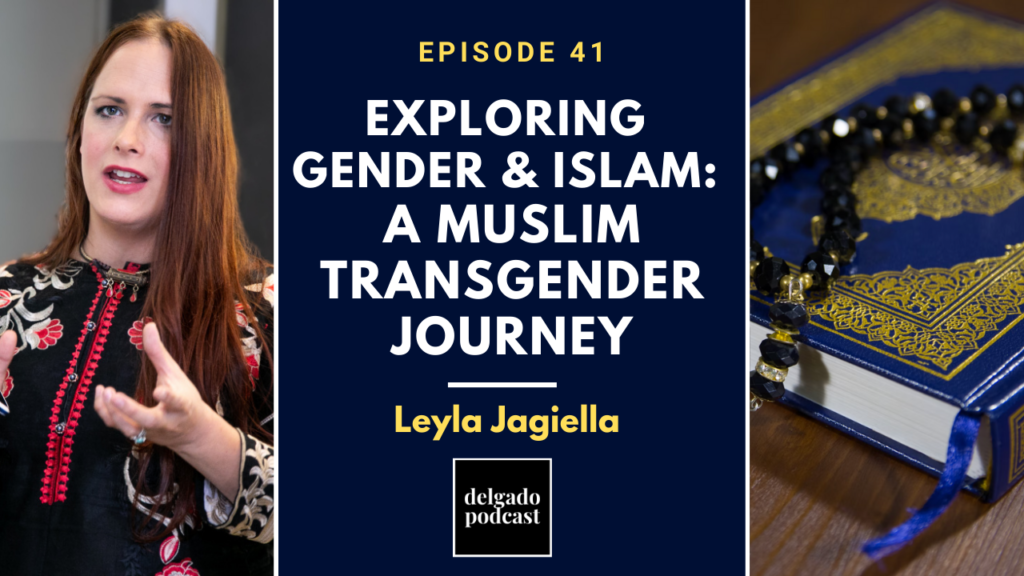
Today, we’re honored to learn from Leyla Jagiella about her book “Among the Eunuchs: A Muslim Transgender Journey, which is published by Hurst.
Her fantastic book shares the story of Leyla’s transgender journey as a Muslim woman and finding belonging among the third-gender communities in South East Asia. Her brave and insightful book explores perspectives of gender identity and sexuality in Islam and South Asian cultures.
From an early age, Leyla Jagiella knew that she would be defined by two things: being Muslim and being trans. Struggling to negotiate these identities in her conservative, small hometown, she travelled to India and Pakistan, where her life was changed by her time among third-gender communities.
Known as hijras in India, khwajasaras in Pakistan, these marginal communities have traditionally been politically and culturally important, respected for their supernatural powers to bless or curse, and often serving as eunuchs in Mughal India’s palaces. But under British colonialism, the hijras were criminalised and persecuted, entrenching taboos they still battle today.
In this podcast conversation, Leyla talks with us about:
• Studying Anthropology & The Problem of Othering
• Constructions of Gender & Sexuality in Culture
• Being Drawn to Islam & Beauty of Diversity
• Suppressing Gender Identity & Sexuality
• Advice for Those Struggling with Gender Identity and/or Sexuality
• Gendered Spaces in Mosques
• Gaining Recognition as a Transgender Woman in Islam
• Third-Gender Communities in Islam & Joining the Hijras in South East Asia
• Muslim Spirituality, Sufi Shrines & Eunuchs
• Trans-Affirming Scriptures in the Quran, New Testament & Talmud
You can watch the entire conversation about Leyla’s new book here.
Leyla Jagiella is a cultural anthropologist and scholar of religion, working on orthodoxy and heterodoxy in Islam and gender and sexuality in Muslim societies. As a Muslim trans woman, she has also been a community activist for several decades and works as a social worker with LGBTQI refugees in Germany.
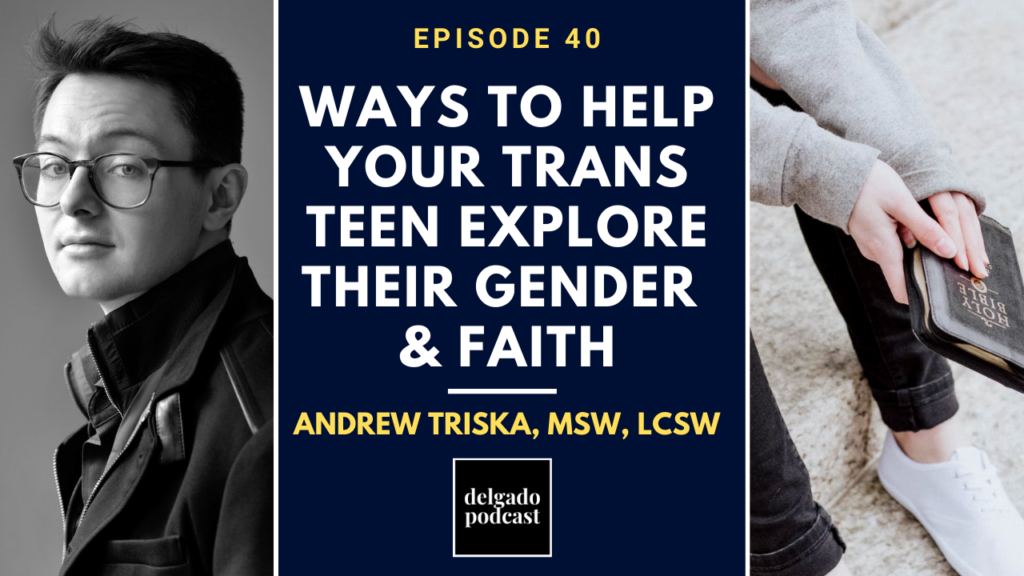
What should you do if your teen comes out as transgender? What are ways to support them in their transition, while also helping them grow in their faith?
Many parents struggle to understand ways to support their their transgender teenager, especially if they think that it’s just a phase of gender exploration, or a mild form of gender dysphoria that will eventually resolve.
A parent may further struggle on how to care for their trans youth if they belong to a non-affirming religious community, which may exclude their teen from participating in important spiritual activities (e.g. communion, confirmation, mitzvahs) and/or gender-based ministries. Sadly, some of these religious communities may further harm trans youth with transphobic teachings and political agendas aimed to hurt the transgender community.
All of this can lead trans youth to feel unaccepted, unloved, and less likely to continue in their faith journey.
This is why it’s important for parents and spiritual leaders to be aware of the prejudice, discrimination, gender harassment, and barriers faced by transgender youth so they can learn ways to help.
Here are some distressing statistics:
Are you interested in learning about ways to better love (and create safer spiritual homes) for LGBTQ+ Christians?
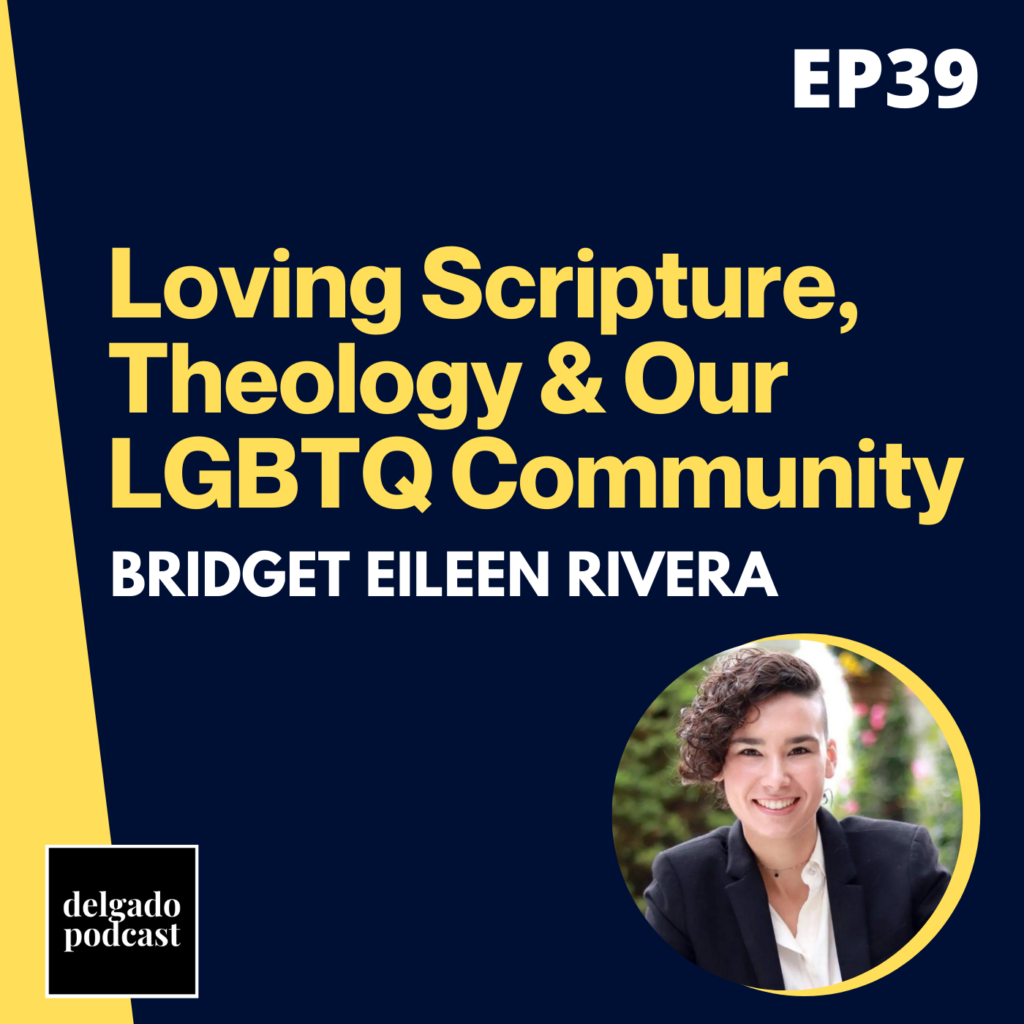
In this episode, we’re honored to learn from Bridget Eileen Rivera about her journey growing up in Reformed Baptist church, coming out, and ways the church can better love and care for LGBTQ+ Christians.
In fact, this is the topic of her latest book entitled: “Heavy Burdens: Seven Ways LGBTQ. Christians Experience Harm in the Church,” where she addresses the pain, trauma and discrimination that many LGBTQ people have experienced in the church – and steps that churches (and all of us) need to take to create safe and inclusive spiritual homes.
Bridget Eileen Rivera is a sociologist completing her PhD at the City University of New York Graduate Center. Rivera has become a leading voice on gay celibacy in the church, helping Christians better grapple with gender and sexuality in a divided culture. She has worked with a number of faith-based organizations, including Revoice, Christians for Social Action, and Preston Sprinkle’s Center for Faith, Sexuality & Gender. Follow her on social media at @travelingnun.
You can download or listen to the conversation here:
You can also subscribe or download this episode on iTunes, Spotify, Google Podcasts, Stitcher or YouTube.
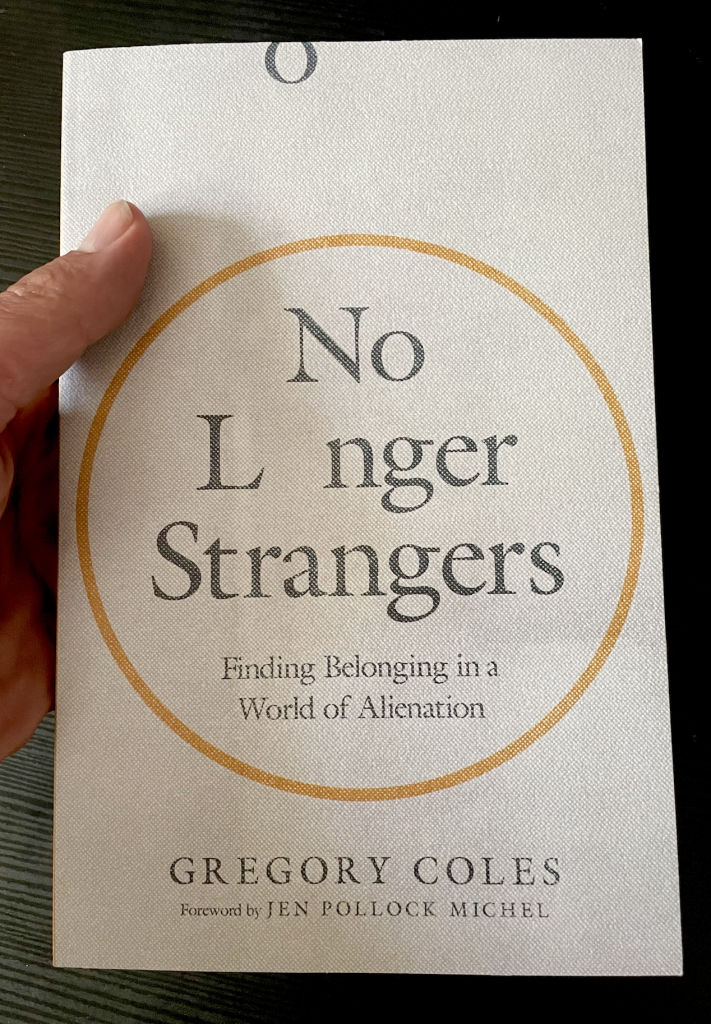 During this podcast season, we’ve been exploring ways our ethnic identity, church traditions and personal experiences can impact our theology, scriptural understanding, and the churches we attend.
During this podcast season, we’ve been exploring ways our ethnic identity, church traditions and personal experiences can impact our theology, scriptural understanding, and the churches we attend.
Last week, Dr. Vince Bantu talked with us about ancient African Christianity, the Black church and the importance of diverse representation in church leadership (and why that’s key to building an inclusive church culture where everyone feels like they belong).
Today, we’re going to continue digging into this theme of belonging by exploring ways our sexual identities can cause us to feel excluded from churches and loved ones.
And we’re going to specifically address why our LGBTQ+ community can struggle to belong in our churches — and what we need to do to make our churches a more safe and inclusive sanctuary for all, especially for those with marginalized identities.
In this episode, we learn from Dr. Gregory Coles about his love of literature, reciting Hamlet when he was eight years old, pursuing a PhD in English Literature, how he came out to his loved ones and church, why he wrote “Single, Gay, Christian,” how he’s dealt with criticism from Christians about his sexual identity, how he’s processed pain and grief when coming out, and what led him to write his latest book: “No Longer Strangers: Finding Belonging in a World of Alienation,” published by InterVarsity Press.
He also shares awesome advice for finding a church when you don’t feel like you belong — and provides helpful insights on ways to love and care for those who come out to us.
I pray this conversation encourages and empowers all of us to create more loving, safe, and inclusive spiritual homes for all.
You can subscribe or download this episode on iTunes, Spotify, Google Podcasts or Stitcher. You can also subscribe to the video series on YouTube.